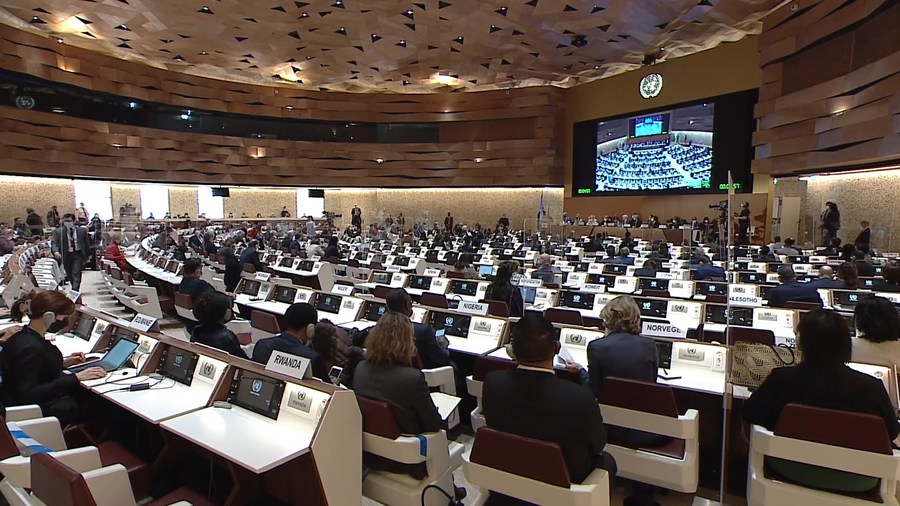
The 49th session of the United Nations Human Rights Council (UNHRC), held at the United Nations Office at Geneva
GENEVA, March 11 (NNN-Xinhua) — The United Nations (UN) Human Rights Council (HRC) held a panel discussion on Thursday on ensuring equitable, affordable, timely and universal access for all countries to vaccines in response to the COVID-19 pandemic.
Michelle Bachelet, UN high commissioner for human rights, said at the event that as the world entered the third year of the COVID-19 pandemic, the international community stood at a crossroads and needed to “choose the right path.”
“The world has been profoundly fortunate to have had effective COVID-19 vaccines developed at an unprecedented pace. Science has saved millions of lives and livelihoods. But we have failed to administer the vaccines in a fair and equitable manner,” she said.
Emphasizing that the “pandemic’s finish line is still out of sight,” Bachelet said that “a false narrative that it may be over is arising in some countries with high vaccination rates, and where the effects of the Omicron variant have been relatively mild.”
“Yet, low vaccination rates in many countries continue to create ideal conditions for new variants to emerge,” she noted. “So they pose a threat to everyone.”
Bachelet stressed that “delayed vaccination may mean a lost decade for development…Countries will become less resilient to fresh crises and shocks. And discontent at the human rights consequences of pandemic-related measures has the potential to escalate societal tensions and violence, which are growing around the world.”
Tedros Adhanom Ghebreyesus, director general of the World Health Organization (WHO), said during the panel discussion that while more than six million people had lost their lives to COVID-19, these figures seriously underrepresented the reality of this crisis.
“While almost ten billion vaccine doses had been administered around the globe, their distribution told a story of inequality: almost 70 percent of vaccinations were in high income countries, while less than 14 percent of people in low-income countries had received a single dose,” he said.
Countries with high vaccination rates are reopening, while others with low vaccination rates and low testing rates have been left behind, and the result is more than 60,000 deaths per week along with an increased risk of the emergence of new virus variants, he warned. — NNN-XINHUA
